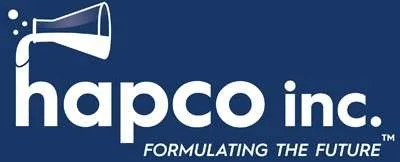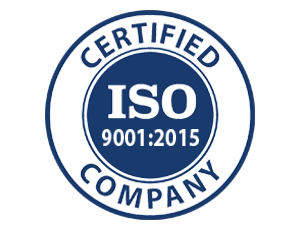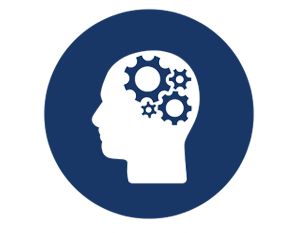Liquid Molding Monthly
Understanding the Importance of China Tpn Bag in Modern Healthcare Solutions
In recent years, the significance of the China TPN Bag in modern healthcare solutions has garnered increasing attention, particularly in the realm of effective nutritional support for patients requiring total parenteral nutrition. According to a report by the Global Market Insights, the global market for parenteral nutrition is projected to reach USD 12 billion by 2027, driven largely by an aging population and a rise in chronic diseases. As healthcare providers seek innovative solutions to enhance patient care, the China TPN Bag stands out due to its advanced manufacturing processes, sterile design, and compliance with international health standards. These bags not only ensure the safe and efficient delivery of essential nutrients but also play a crucial role in minimizing complications associated with parenteral nutrition. Understanding the importance of the China TPN Bag is essential for healthcare professionals aiming to optimize treatment outcomes and improve the quality of care in various clinical settings.
The Role of Tpn Bags in Nutritional Support for Patients in Healthcare
Total Parenteral Nutrition (TPN) bags play a crucial role in providing nutritional support to patients who cannot access nutrients through traditional means. According to a 2021 report by the American Society for Parenteral and Enteral Nutrition (ASPEN), around 300,000 patients in the United States rely on TPN annually, highlighting its significance in healthcare. These sterile, nutrient-rich solutions enable healthcare providers to deliver essential vitamins, minerals, and macronutrients directly into the bloodstream, ensuring that critically ill or post-operative patients receive adequate nutrition for recovery.
Incorporating TPN bags into patient care not only improves outcomes for individuals with chronic illnesses or surgical recovery but also demonstrates the impact of tailored nutritional interventions. A study published in the Journal of Nutrition found that patients who received TPN exhibited a 30% higher recovery rate compared to those who did not. This emphasizes the importance of timely and effective nutritional support in the healing process.
Tips for Effective TPN Management:
1. Regular monitoring of laboratory parameters is essential to adjust the TPN composition according to the patient's evolving nutritional needs.
2. Collaborating with a multidisciplinary team, including dietitians, can optimize TPN protocols and improve patient outcomes.
3. Always ensure sterile techniques are followed during TPN administration to prevent complications like infections.
Advantages of China-Made Tpn Bags in Global Medical Supply Chains
In modern healthcare, the significance of China-made Total Parenteral Nutrition (TPN) bags cannot be overstated. These bags play a crucial role in delivering essential nutrients directly to patients who are unable to consume food orally, making them vital in hospitals and for home care. As the global medical supply chain faces challenges, particularly with tariffs affecting imports from China, ensuring a smooth supply of TPN bags is essential for patient care continuity.
According to recent industry reports, approximately 1.1 million patients in the U.S. rely on TPN for their nutritional needs, illustrating the critical role these bags play in healthcare. China, being a leading manufacturer, provides TPN bags that are cost-effective, maintaining high standards of quality, which helps in keeping healthcare costs manageable. However, disruptions in the supply chain due to tariffs could lead to shortages, ultimately impacting the well-being of millions.
**Tips:** When selecting TPN bags, it's essential to consider the manufacturer’s quality certifications and compliance with international standards. Regularly audit your supply chain to prevent potential disruptions, and establish relationships with multiple suppliers to ensure continuity in patient care. Staying informed about geopolitical trends can also help mitigate risks related to tariff changes and supply chain complexities.
Innovations in Tpn Bag Technology and Their Impact on Patient Care
Total Parenteral Nutrition (TPN) bags are increasingly critical in modern healthcare, particularly in managing patients who cannot receive adequate nutrition through traditional means. Recent innovations in TPN bag technology focus on improving patient care by enhancing the safety, stability, and efficiency of nutrient delivery. According to a report by Grand View Research, the global TPN market is expected to reach USD 6.3 billion by 2025, propelled by advancements in TPN formulations and bag design. These innovations have led to the development of bags that minimize contamination risks and enhance nutrient absorption, thereby improving patient outcomes.
One significant advancement in TPN bag technology involves the integration of smart features, such as real-time monitoring of nutrient infusion rates and temperature control. This capability ensures that patients receive the correct nutrient composition while reducing the likelihood of complications. A study published in the Journal of Parenteral and Enteral Nutrition found that the utilization of advanced TPN bags resulted in a 20% decrease in infection rates among patients. Furthermore, the introduction of user-friendly interfaces allows healthcare providers to monitor and adjust TPN administration more effectively, ensuring optimal patient care and enhanced recovery experiences.
Challenges and Solutions in the Production of Tpn Bags in China
The production of Total Parenteral Nutrition (TPN) bags in China faces several challenges that impact the healthcare sector. According to a report by the Research Institute of Pharmaceutical Industry, the demand for TPN bags is projected to grow at a CAGR of 10.2% from 2021 to 2026, driven by the rising prevalence of chronic diseases and the aging population. However, manufacturers encounter significant hurdles in maintaining quality and compliance with international standards. Issues include inadequate infrastructure, reliance on outdated technology, and a shortage of skilled labor, which can lead to compromised product safety and efficacy.
Additionally, the raw materials used in TPN bag production, such as polyvinyl chloride (PVC) and polyethylene, can be subject to supply chain disruptions. A study published in the Journal of Healthcare Engineering highlighted that the inconsistency in the supply of high-quality raw materials directly affects the manufacturing process. To tackle these challenges, the industry is exploring automation and investment in advanced manufacturing technologies, which can enhance efficiency and product reliability. Moreover, partnerships with leading healthcare organizations are essential for fostering innovation and ensuring adherence to global quality standards.
Importance of TPN Bag in Modern Healthcare Solutions
Future Trends in Tpn Bag Usage and Development within Modern Healthcare
The landscape of modern healthcare is evolving, with Total Parenteral Nutrition (TPN) bags gaining significance as vital tools for patient care. The increasing demand for infusion therapy, particularly driven by an aging population and the rising prevalence of chronic diseases, highlights the critical role TPN bags play in providing essential nutrients to patients who are unable to eat by mouth. As healthcare systems adapt to these demographic changes, TPN bags must evolve to meet the diverse needs of patients, ensuring safety and effectiveness in nutrient delivery.
Future trends in TPN bag usage indicate a shift toward more advanced technologies, emphasizing customization and enhanced patient outcomes. Innovations may include smart TPN bags equipped with real-time monitoring capabilities, allowing healthcare providers to track nutrient delivery more efficiently. Additionally, sustainable practices in TPN bag production are becoming increasingly important, responding to the global push for environmental responsibility in healthcare. As the infusion therapy market continues to grow, the development of TPN bags will undoubtedly reflect these trends, fostering a more responsive and efficient healthcare environment.


100% Mercury Free
All of Hapco's formulations are completely free of Mercury.

50 Year Track Record
Hapco has been in business for over 50 years!
*NOTICE* Hapco will be will be closed on Monday, May 26th, in observance of Memorial Day. |
Privacy Overview
| Cookie | Duration | Description |
|---|---|---|
| cookielawinfo-checkbox-analytics | 11 months | This cookie is set by GDPR Cookie Consent plugin. The cookie is used to store the user consent for the cookies in the category "Analytics". |
| cookielawinfo-checkbox-functional | 11 months | The cookie is set by GDPR cookie consent to record the user consent for the cookies in the category "Functional". |
| cookielawinfo-checkbox-necessary | 11 months | This cookie is set by GDPR Cookie Consent plugin. The cookies is used to store the user consent for the cookies in the category "Necessary". |
| cookielawinfo-checkbox-others | 11 months | This cookie is set by GDPR Cookie Consent plugin. The cookie is used to store the user consent for the cookies in the category "Other. |
| cookielawinfo-checkbox-performance | 11 months | This cookie is set by GDPR Cookie Consent plugin. The cookie is used to store the user consent for the cookies in the category "Performance". |
| viewed_cookie_policy | 11 months | The cookie is set by the GDPR Cookie Consent plugin and is used to store whether or not user has consented to the use of cookies. It does not store any personal data. |


